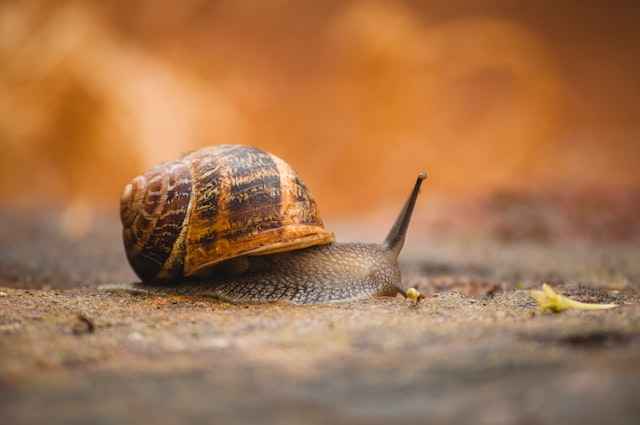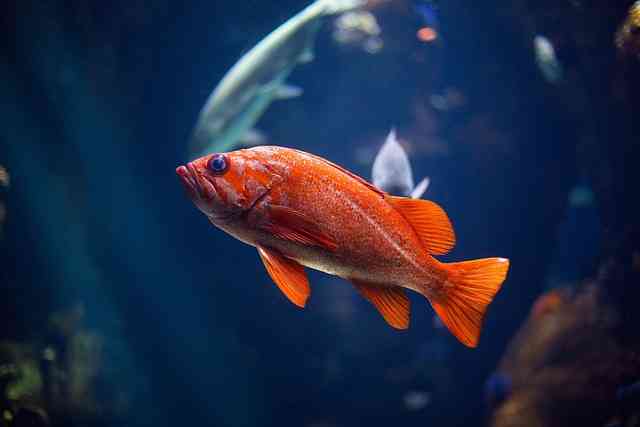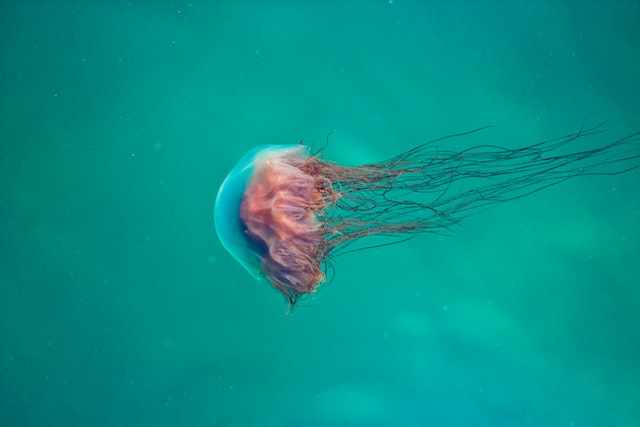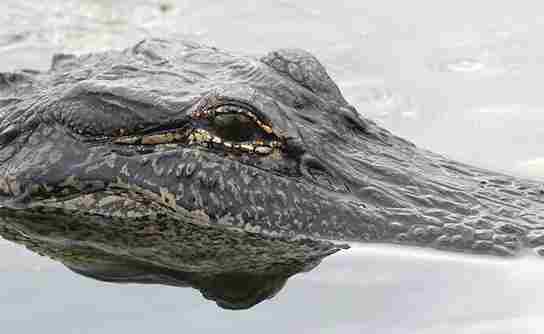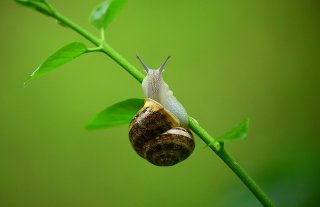Do Bearded Dragons Need Light At Night?
Bearded dragons thrive in hot climates and can suffer several health problems in low-temperature conditions. If you keep some as pets, it’s important to understand their lighting needs so you can create the best possible environment for them. So, do bearded dragons need light at night?
Bearded dragons are diurnal creatures, which means they are usually active in the daytime, not at night. Just like humans, they do not need light at night as this will disrupt their sleep cycle and affect their overall health.
Having said that, bearded dragons need light in the day; this is crucial to their survival. In this article, we will look at why bearded dragons need light at night and some of the best options available.
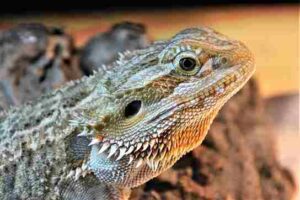
What Are The Lighting Requirements For Bearded Dragons?
It is very important to always ensure there’s adequate illumination in your beardies enclosure. Most people approach this the wrong way.
In order to get the best lighting, you should ensure that your lighting arrangement for your bearded dragon should be similar to what they experience in the wild.
The desert is a bearded dragon’s native habitat. In the wild, they are constantly exposed to the sun’s heat and ultraviolet rays. High ultraviolet (UVA and UVB) output light bulbs must be utilized in order to most accurately simulate the ultraviolet light in an indoor setting. The two sources that are most frequently utilized are fluorescent bulbs and mercury vapor lamps.
In addition to ensuring that your bearded dragons receive proper lighting, you must also ensure they get enough heat. To maintain their regular bodily functions, reptiles typically rely on heat from the sun. You should aim to replicate the same experience in the pet house.
Usually, a ceramic, incandescent, or halogen heat lamp and a UVA/UVB fluorescent tube, like Mercury vapor and compact fluorescent bulbs are the two common options available to breeders and pet owners. The good thing is that these lights are easy to set up and are readily available.
Specifically, halogen heat lamps are the most effective options for supplying heat to bearded dragons. When installing any heat lamp, make sure it doesn’t come in direct contact with surfaces that can melt.
Importance Of Lighting for Bearded Dragons
Bearded dragons originate in the scorching arid regions of Australia’s outback. Because of this, they naturally absorb UVA and UVB radiation from the sun.
The radiation from the sun is crucial to their well-being. It’s important your pet is exposed to light for at least 10 to 12 hours per day. Lack of UV exposure can cause several health problems, ranging from loss of appetite to metabolic bone disease. Also, UVB rays help the dragon digest nutrients such as calcium and vitamin D3.
Make sure the lightbulb you choose emits between 5% and 7% UVA and UVB rays. If you’re using a fluorescent bulb, make sure it is at least 80 percent the length of the enclosure. To install any light, always follow the manufacturer’s instructions.
What Lights Do Bearded Dragons Need At Night?
As I mentioned earlier, bearded dragons do not need light at night. This means that you should turn off the lights at night to enable them to get adequate sleep and be re-energized. The lights should only be turned on during the day.
UVA light for bearded dragons
Bearded dragons in the wild are exposed to heat and ultraviolet light from the sun. So, the best way to create a similar environment in an indoor enclosure is to use heat lamps that produce UVA and UVB lights. Two popular options among pet owners are mercury vapor bulbs and fluorescent bulbs.
Specifically, UVA lights are required by beardies to stay healthy, maintain their appetite, and keep them stimulated.
There are numerous options in the market but my favorite option is this basking spot lamp by BOEESPAT. It’s powerful, energy-saving, long-lasting, and has high thermal efficiency. More so, it can be used for any reptile, not just lizards.
Bearded dragon UVB light
UVB lighting is required by bearded dragons to metabolize vitamin D3 and calcium. So, in the absence of UV light, the lizard will be deprived of calcium, a situation that can lead to hypercalcemia. This can happen in a space of two days without UVB light.
Both the UVA and UVB lights should be kept on during the day and turned off at night.
If you’re still in the process of setting up an enclosure for your bearded dragon, it’s important you choose the right UVB light. Some great options are.
Besides bearded dragons, other animals that need UVB lights include chameleons, iguanas, tortoises, and turtles.
Bearded Dragon Light Schedule
The general light schedule of bearded dragons is similar to that of humans. They are active during the day and sleep at night. This means you should keep the light on during the day and turn it off at night. This is to imitate day and night in the enclosure.
With regards to the timing, you should expose them to proper lighting for at least 10 to 12 hours each day. Utilizing a timer is the most effective way to keep an accurate light schedule. The timer will automate regular light schedules by turning the lights on and off at the time you set.
During summer, you can increase their light exposure to 14-16 hours during the day and 8-10 hours of sleep. Likewise, during winter, you can reduce it to 10-12 hours of UV light and 12-14 hours of nighttime.
Risk of insufficient lighting
Your bearded dragons should not go a day or two without UVA/UVB light. This is because light is necessary for the production of vitamin D, which enables them to properly absorb calcium from their diet. In this section, we’ll look at the complications associated with leaving your dragons without insufficient lighting and heat.
Digestive Issues
This is the most common symptom you will notice when a bearded dragon is not getting enough light and heat. Beardies obtain the heat needed for food digestion from external sources.
This means that if they don’t get enough heat or illumination, they won’t be able to digest their food properly. This can lead to impaction as undigested remain stuck within their digestive tract. If this is not resolved on time, it can result in the death of your pet.
State of lethargy
When exposed to cold for long periods, besides having digestive problems, bearded dragons also experience weakness and lethargy. One of the ways they survive or get through this is to enter into brumation, a state of inactivity or rest, resulting in reduced metabolic activity.
Brumation is also common among other reptiles in the wild, such as snakes and lizards, where they “shut down” during the cold chills of winter and come out again in the spring.
Color Transition
Another consequence of a cold environment is that your bearded dragon will get darker. This is necessary in order to absorb more heat and regulate their body temperatures.
It should be noted that color change is not only a result of a cold environment. So, always investigate further causes if you notice any darkening, especially if the cage is not too cold.
What time should I turn my bearded dragon’s light off at night?
The best time to turn off your beardies’ light is at sunset. Then turn them back on at sunrise.
When you think about it, the time you turn on or turn off the UVB lighting tends to correlate with their basking schedule. So, when you turn on the UVBA light in the morning, you can leave it for up to 10-12 hours daily before you turn it off at night, just when the sun sets.
Never keep the lights on throughout the time (i.e., for 24 hours) as this can cause health issues.
How long can a bearded dragon go without night light?
As earlier indicated, bearded dragons don’t need light at night; they only require it during the day. This means that they can go all night without light. That is about 12 hours.
Leaving the lights on at night has no positive impact on your beardies. Instead, it will get them irritated and tired since they will be unable to sleep properly.
What you need to keep constant in their enclosure is warmth, which is why it’s recommended to use a heat emitter after turning off the lamp at night. A bearded dragon cannot go for more than 24 hours without adequate heat, either from a heat lamp or an external source such as the sun if the temperature is 65 degrees or more.
Do baby bearded dragons need light at night?
When it comes to humans, babies have a weaker system than adults. It’s no different with bearded dragons. So, it’s advisable to provide extra care for your lizards at their neonatal stage.
At night time, just like the adults, baby bearded dragons do not need light. However, to keep their temperature from fluctuating, it’s recommended to get a heater without light. This will ensure they don’t get too cold in the dark.
The lighting schedule of baby bearded dragons is very similar to that of adults – keep the lights on during the day and turn it off at night.
Do you keep basking light on at night for bearded dragons?
Basking lights provide a hot spot in enclosures which is required by bearded dragons to thermoregulate. In other words, they help to create various temperature zones within the enclosure by making some sides warmer than others.
However, even though they provide heat, the light could be a problem at night since beardies require total darkness. So, it’s best to switch them off.
What you can do is to use a ceramic heat emitter at night if the temperature within the enclosure falls below 65 degrees Fahrenheit.
A ceramic heat emitter produces heat but emits no light, which makes it ideal for night use since the heating lamp will be turned off at that time. This ensures the photocycle of your bearded dragon is not disrupted.
If you’re looking for optionals, consider the infrared heat emitter from Simple Deluxe. It doesn’t only provide constant heat throughout the night, it lasts longer than a heat bulb.
Can I use incandescent or CFL bulbs with my bearded dragon?
Yes, you can use incandescent or CFL bulbs with your bearded dragon. However, it may not be the best option.
Even though CFL bulbs are a cheaper solution, their UVB output is slightly less than that of larger fluorescents. They also have a shorter lifespan and cover less surface area in the cage. Generally, the light from a CFL bulb is only adequate for the basking spot.
If you want adequate illumination to cover more area in the enclosure, you will need a longer bulb.
Having said that, CFL bulbs are not bad for your reptiles. If you decide to use them, make sure to replace them every 3-4 months. Light other lighting for bearded dragons, they should be used during the day and turned off at night.
Do bearded dragons need a heat lamp?
Yes, they do. A heat lamp is often required to simulate a bearded dragon’s natural habitat.
It helps in regulating their day and night cycles which is beneficial to their physiology. For instance, it helps to maintain their appetite and aid digestion.
This means that in the absence of heat, your beardies can become sickly. In worse cases, they can suffer from impaction.
At night, heat lamps should be turned off if they also act as a source of illumination. Heaters without a light source can be left on if the temperature in the cage drops lower than normal.
